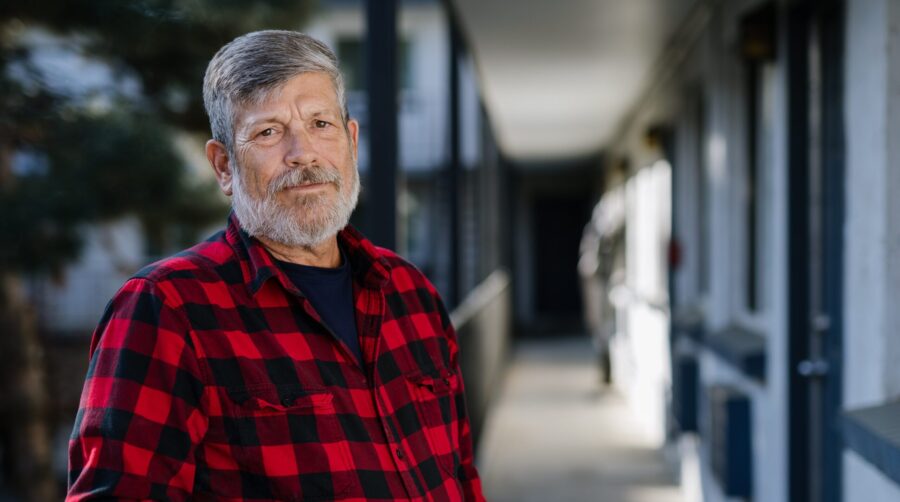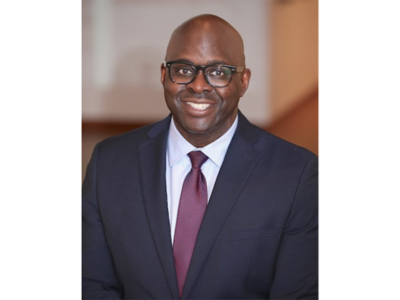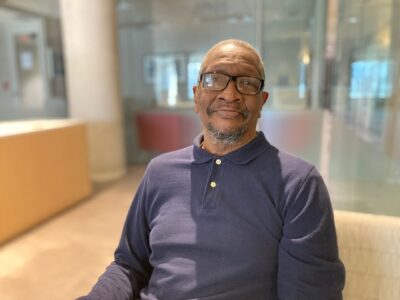The COVID-19 pandemic has destabilized the lives and safety of people who do not have a home, and highlighted the critical need to reduce and end homelessness. Community Solutions has partnered with Built for Zero communities to deploy a housing model that can be leveraged to quickly close the housing gap — which has now expanded affordable housing options in three communities across the country.
“We’ve learned the power of starting at the end state you want. And for any housing system, you should be seeing that your policies and practices and investment add up to no one experiencing homelessness, and no one is paying more than 30% and no one is living in unsafe conditions,” said Dave Foster, Principal of Real Estate at Community Solutions.
Closing the Housing Gap for Good
Housing is to homelessness as vaccines are to diseases. They’re crucial on their own, but it takes a strong delivery system to make sure everybody gets the cure.
Community Solutions has partnered with Built for Zero communities to pioneer a real estate model that can be leveraged to help close the housing gap. The social impact investment model delivers affordable housing in less time and cost than traditional development methods. Built for Zero communities already know the housing needs in their markets because of their real-time data on people experiencing homelessness, and the model allows them to connect the data to the targeted real estate solutions. Aurora, outside of Denver, leveraged the model to buy Abrigo Apartments, located adjacent to the local VA and home to veterans who experienced homelessness. Now, Community Solutions has helped deploy the model in Atlanta and Santa Fe to help close the housing gap on the way to zero.
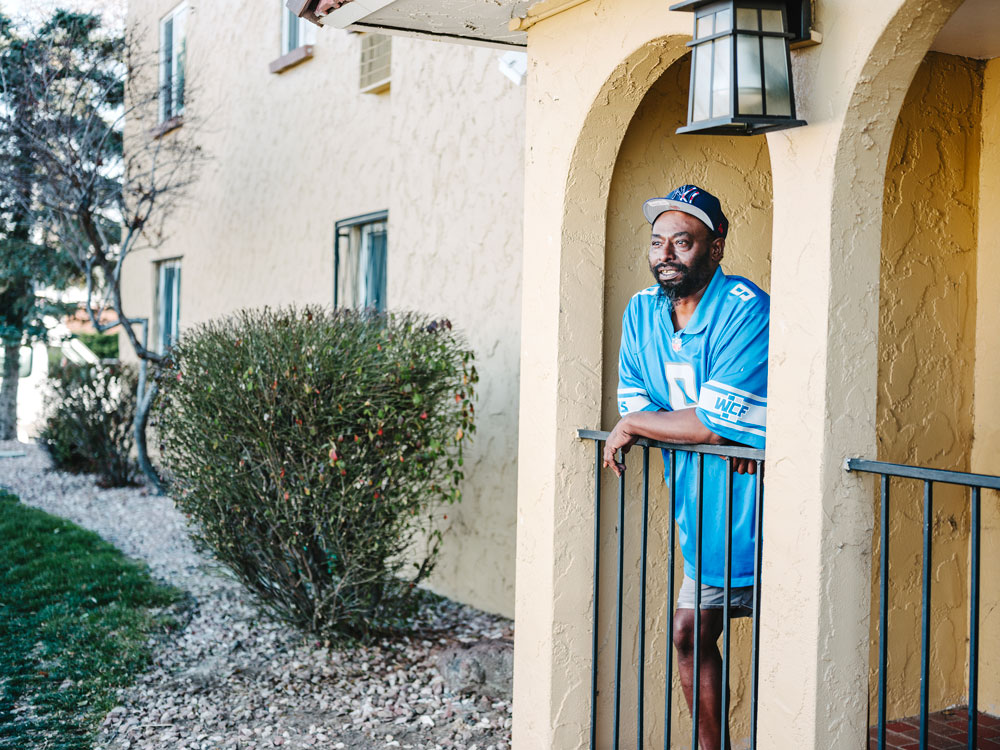
This moment provides the opportunity for communities to leverage the social impact model, along with the additional federal resources available from COVID-19 relief, allowing them to house more people, more quickly. From Phoenix to Jacksonville, even more communities are setting their sights on deploying this model to help close the housing gap across the country.
“This could serve as a model to urgently expand affordable housing in other communities across the country, especially as the COVID-19 pandemic continues to destabilize the lives of individuals, families, and entire communities,” said Allyson Randolph, Assistant Director of Real Estate.
An Innovative Model
The lack of permanent, supportive housing is a huge barrier to housing veterans experiencing homelessness, especially in large cities like Atlanta. In Atlanta, Partners for HOME collaborated with Community Solutions to purchase a 132-unit apartment building, Centra Villa.
Centra Villa will continue to house low-income individuals and families while providing housing options for veterans in need.
“Central Villa provides an example of how communities can leverage social impact investments to quickly acquire and target existing units for people experiencing homelessness,” Randolph said.
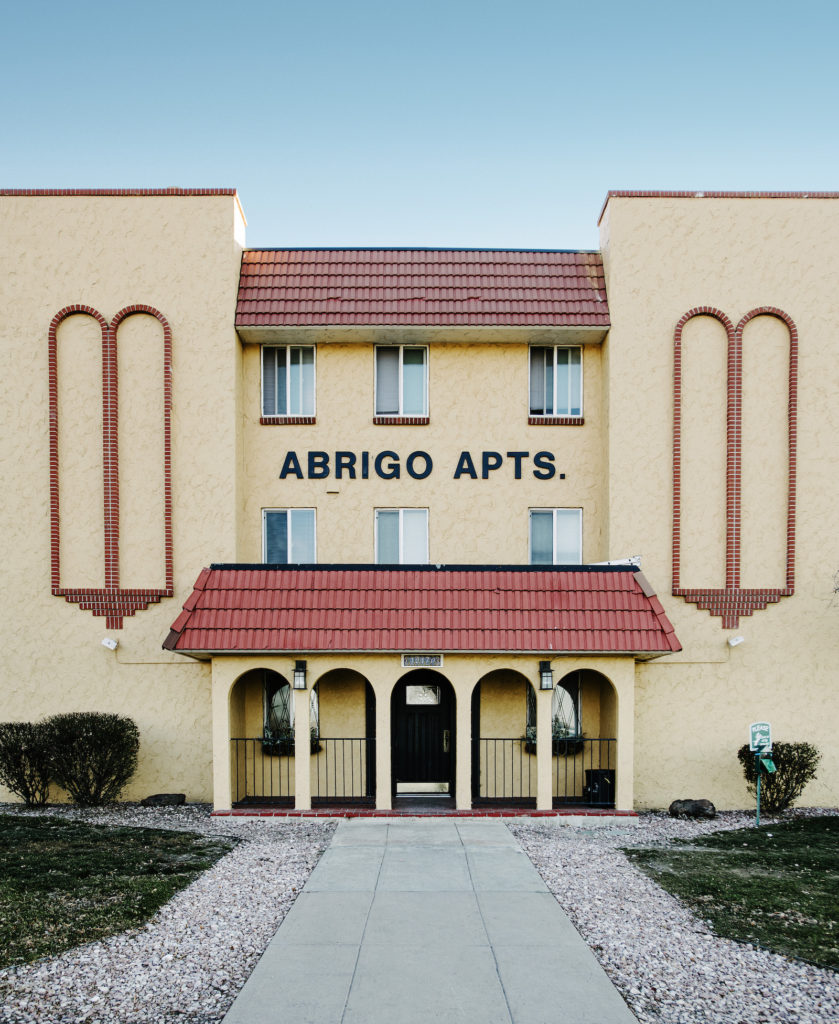
“This could serve as a model to urgently expand affordable housing in other communities across the country, especially as the COVID-19 pandemic continues to destabilize the lives of individuals, families, and entire communities.”
– Allyson Randolph, Assistant Director of Real Estate
Located just a few miles from the Atlanta Veteran Affairs Medical Center (VAMC), Centra Villa provides its tenants easy access to medical services and other community resources, in addition to long-term, permanent housing.
The project was financed through an innovative new model developed by Community Solutions and tailored to the region’s housing needs. The core tenets include:
Social Impact Capital
- Instead of financing through Low Income Housing Tax Credits — which can take years — it uses investors who are interested in social impact, beyond making a return on their money.
Nonprofit Ownership
- The property is owned by national or local nonprofits who are not incentivized to maximize the profit of the property.
Connection to the Housing System
- The property is linked to the local housing system, rather than remaining a standalone piece of housing that is not connected to the ongoing needs of people at risk of or experiencing homelessness in the community. As units turn over and become vacant, the new model prioritizes the most at-risk people experiencing housing instability for residence.
Property Management Plus
- The property features an enhanced form of property management where residents are connected to social services before they can enter a situation where they become housing unstable and get evicted. For example: If a resident is unable to pay rent because they need urgent medical care, the building would help connect them to care first.
“It’s not just about a unit. It’s a process to connect the most at-risk in the community,” said Foster, Principal of Real Estate at Community Solutions.
In places with tourism-dependent economies, like Santa Fe, partially occupied hotels struggle to keep their doors open during the pandemic.
Leveraging federal funding, Santa Fe has pioneered the innovative model to provide more than 120 people a safe place to live, while accelerating the city’s efforts to end homelessness in the process.
Finding New Solutions
“It’s not just about a unit. It’s a process to connect the most at-risk in the community.”
DavE Foster, Principal of Real Estate at Community Solutions
Through a partnership between the City of Santa Fe, Community Solutions, and local nonprofit St. Elizabeth, Santa Fe effectively put CARES Act funding to repurpose Santa Fe Suites, a below occupancy hotel that provided extended stay residence for people experiencing or on the verge of housing instability. They combined the federal funding with the social impact model to purchase the motel in December 2020.
Tenants include a resident who was able to exit chronic homelessness, and families who chose to stay and were able to reduce their rent by $450.
“There is a way of actually breaking out of old habits — even if they seem good and well-intentioned — breaking out of them if you are prepared, and you are able to use the money effectively […] It is a systems approach rather than a broken systems patch-it-together approach,” Mayor Alan Webber of Santa Fe said during a recent CityLab event.
